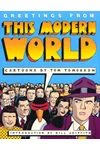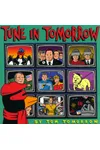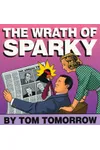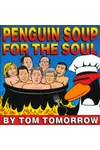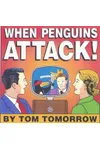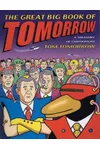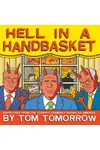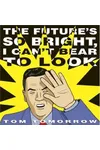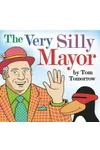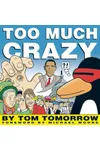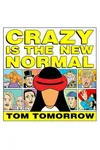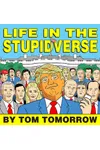Step into the biting, colorful world of This Modern World, where a sunglasses-wearing penguin named Sparky skewers American politics with razor-sharp wit! Created by cartoonist Tom Tomorrow (aka Dan Perkins), this satirical comic strip has been a left-wing beacon since 1988, blending retro aesthetics with incisive commentary. Published in over 80 newspapers and platforms like The Nation and Daily Kos, it’s a must-read for anyone craving a humorous take on the absurdities of modern life.
With its unique clip-art-inspired style and cast of quirky characters, This Modern World doesn’t just poke fun at those in power—it challenges readers to question the media, politics, and their own assumptions. Ready to dive into a world where satire meets social critique? Let’s explore!
How This Modern World Began
Dan Perkins, under the pseudonym Tom Tomorrow, launched This Modern World in 1988 in the San Francisco-based anarchist magazine Processed World. Initially focused on consumer culture and workplace drudgery, the strip found its true calling in the 1990s as Perkins shifted to political satire. Inspired by the absurdities of American politics, he began self-syndicating the strip, landing in outlets like SF Weekly and the San Francisco Examiner. Its bold, liberal lens and distinctive art style—originally crafted from vintage clip art collages—quickly gained a cult following.
Perkins’ knack for blending humor with hard-hitting critique grew the strip’s reach, despite setbacks like losing 12 client papers in 2009 when Village Voice Media cut syndicated cartoons. Support from fans, including Pearl Jam’s Eddie Vedder, kept the strip alive, cementing its place in alternative media.
The Heart of This Modern World
The This Modern World series shines through its anthology books, compiling decades of weekly strips. Key titles include The Great Big Book of Tomorrow (2003), a hefty omnibus of early work; Hell in a Handbasket (2006), tackling the Bush era with full-color satire; Too Much Crazy (2011), a Michael Moore-foreworded jab at political hypocrisy; and 25 Years of Tomorrow (2016), a Kickstarter-funded retrospective celebrating over 1,500 cartoons.
The series’ themes dig deep into the influence of money in politics, corporate greed, and media manipulation, all wrapped in a retro 1950s aesthetic. Characters like Sparky the Wonder Penguin, a fast-talking liberal, and Blinky, his mellow Boston Terrier sidekick, navigate a world of naive humans and duplicitous politicians. The art, once actual clip art but now Perkins’ own drawings mimicking that style, pairs verbose, bubbly dialogue with sharp visual gags, making complex issues accessible and hilarious.
Unlike traditional comics, This Modern World often uses near-identical panels, letting dialogue and subtle expression changes drive the humor. This minimalist approach amplifies its satirical edge, inviting readers to laugh while reflecting on society’s flaws.
Why This Modern World Resonates
This Modern World’s enduring appeal lies in its fearless critique of power and its ability to stay relevant across decades. From the Bush administration to the Trump era, Perkins has captured the zeitgeist, earning accolades like two Robert F. Kennedy Journalism Awards and a 2015 Pulitzer Prize finalist nod. Fans, including Mark Hamill and George Takei, praise its ability to make the absurd laughable yet poignant.
Its influence extends beyond comics, shaping political discourse in alternative media and inspiring readers to question mainstream narratives. In a polarized world, This Modern World remains a vital voice, blending humor with hope for a more just society.
- Publication Years: 1988–present (books from 1992–2020)
- Key Books: 10 anthologies, including 25 Years of Tomorrow
- Awards: 2013 Herblock Prize, 2015 Society of Illustrators Silver Medal
- Fun Fact: Perkins created the cover for Pearl Jam’s Backspacer album!
Grab The Great Big Book of Tomorrow and dive into This Modern World’s satirical universe! Sparky’s waiting to guide you through the madness with a smirk and a quip.
